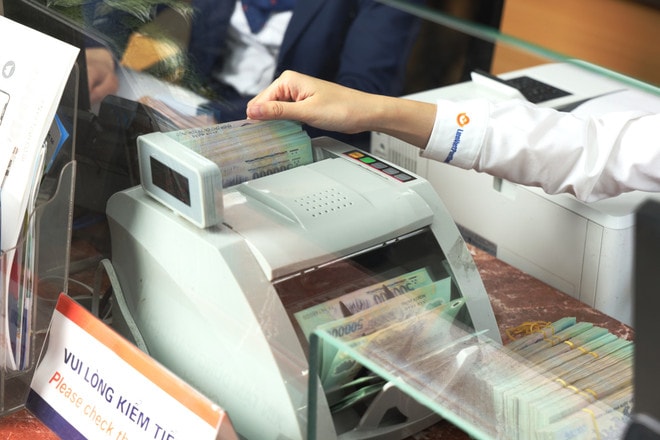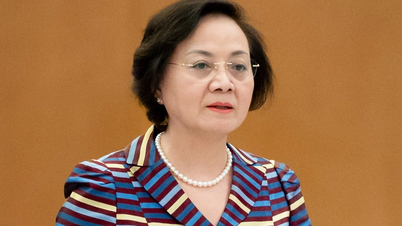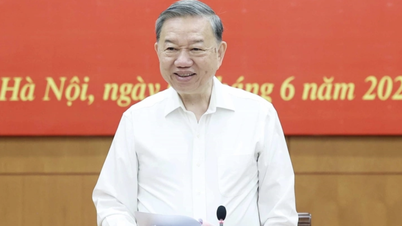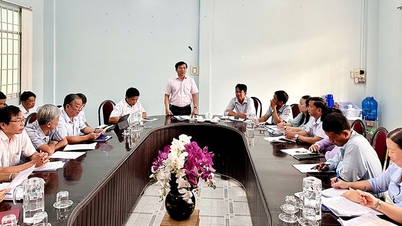Deposit interest rates gradually stabilize after a long series of declines
After many consecutive months of reducing deposit interest rates to facilitate the flow of cheap capital in the banking system, the market in May 2025 recorded clear signs of "cooling down".
Instead of the previous simultaneous reductions, the current trend has shifted to a cautious and differentiated state. Only a few banks continue to adjust interest rates downward, reflecting a more cautious approach to capital mobilization strategies.
Data from the State Bank of Vietnam (SBV) shows that from February to the end of May, a total of 30 banks adjusted their deposit interest rates down, with the reduction ranging from 0.1 to 1.05% per year. However, in May, the decline slowed down significantly. Specifically, only 4 banks made adjustments in the month: VPBank , MB, Eximbank and GPBank. Previously, in April, this number only stopped at 9 banks.
The four “big guys” of state-owned commercial banks – Agribank , Vietcombank, VietinBank and BIDV – still play a role in shaping the interest rate level in the market, with the listed rates always in the lowest group. Currently, these banks apply the highest mobilization interest rate of 5%/year, while the lowest rate is only from 1.6% to 1.59%/year if customers receive interest at the beginning of the period.
The common interest rate for 12-month term in this group currently ranges from 5.1% to 5.6%/year, while 6%/year interest rate has become very rare. Only Vikki Bank maintains 6%/year for 12-month term.
At other banks, if depositors want to enjoy an interest rate of 6%/year, they usually have to choose a longer term. For example, Bac A Bank applies an interest rate of 6%/year for terms from 18 to 36 months with deposits under 1 billion VND. For deposits of 1 billion VND or more, the highest interest rate of 6.2%/year is also listed by this bank.
At HDBank, the 15-month online savings interest rate is still at 6%/year, while the highest rate at this bank is 6.1%/year for an 18-month term.
The recent reduction in deposit interest rates by banks is not merely a technical matter, but also reflects positive signs of system liquidity, and confidence in the ability to control inflation and stabilize the macroeconomy is gradually being strengthened.
However, according to experts, it is important to understand that reducing deposit interest rates does not mean that lending interest rates will decrease immediately and evenly. Commercial banks still have to consider many factors such as credit risk, bad debt provisioning and maintaining profit margins.
At a seminar with businesses and industry associations to effectively implement Resolution 68-NQ/TW of the Politburo on private economic development, Governor of the State Bank of Vietnam Nguyen Thi Hong shared: credit and interest rates are always issues that businesses are concerned about and reflect on, not just in a specific period or term.
She emphasized that in addition to managing lending activities of credit institutions, the State Bank must also operate monetary policy to stabilize the macro economy, control inflation and maintain the money and foreign exchange markets. This is a task with a lot of pressure in the context of a highly open and volatile economy.
“Management is extremely difficult and stressful, but over the years, the State Bank has always strived to contribute to improving the business environment for businesses and people,” the Governor affirmed.

Loan interest rates vary significantly between banks
According to data released by the State Bank of Vietnam (SBV), as of April 10, 2025, the average lending interest rate for new loans in the commercial banking system reached 6.34%/year, down 0.6 percentage points compared to the end of 2024. However, the market reality shows an inconsistent picture.
A recent quick survey conducted by the Vietnam Young Entrepreneurs Association on member businesses, mainly small and medium-sized enterprises operating in the fields of manufacturing, construction, agriculture, trade and import-export, recorded a large difference in interest rates between banks as well as between types of loans.
Specifically, for short-term loans, the current interest rate ranges from 4% to over 9.5%/year, in which most businesses are borrowing at a common interest rate of about 6% - 8.5%/year. Worryingly, some businesses report that they are having to bear interest rates of up to 11%/year, much higher than the average.
For medium and long-term loans, interest rates range from 5% to 11% per year, with most businesses accessing capital at 6% - 8% per year. However, many businesses said they could not access loans or still had to borrow at high interest rates, despite the announcement of support packages. About 50% of surveyed businesses said that the current interest rate level was unreasonable.
Faced with this situation, Governor of the State Bank of Vietnam Nguyen Thi Hong said that despite the sharp increase in global interest rates in recent times, the Vietnamese banking industry has proactively managed to reduce domestic interest rates.
Credit institutions have demonstrated a sense of responsibility and humanity by proactively cutting interest rates, supporting businesses and people to overcome difficulties caused by the Covid-19 pandemic, natural disasters, etc., with a total support amount of up to 60,000 - 70,000 billion VND.
In addition, the banking industry has implemented many credit packages such as loans for the fisheries sector, home loans for low-income people... Notably, all of these programs use capital from credit institutions, not the state budget.
Explaining why some businesses still have to borrow capital at high interest rates, Ms. Hong said the reason lies in the lengthy investment and production procedures, leading to businesses taking a long time to use and rotate capital.
According to her, promoting the streamlining of the apparatus and amending laws such as the Investment Law, Bidding Law, Real Estate Business Law, etc. will play a key role in shortening the time for carrying out procedures, helping capital flow faster, thereby creating conditions to reduce interest rates and expand access to capital for businesses.
Source: https://baodaknong.vn/nhieu-yeu-to-gay-suc-ep-len-mat-bang-lai-suat-trong-thoi-gian-toi-254472.html

































































































Comment (0)